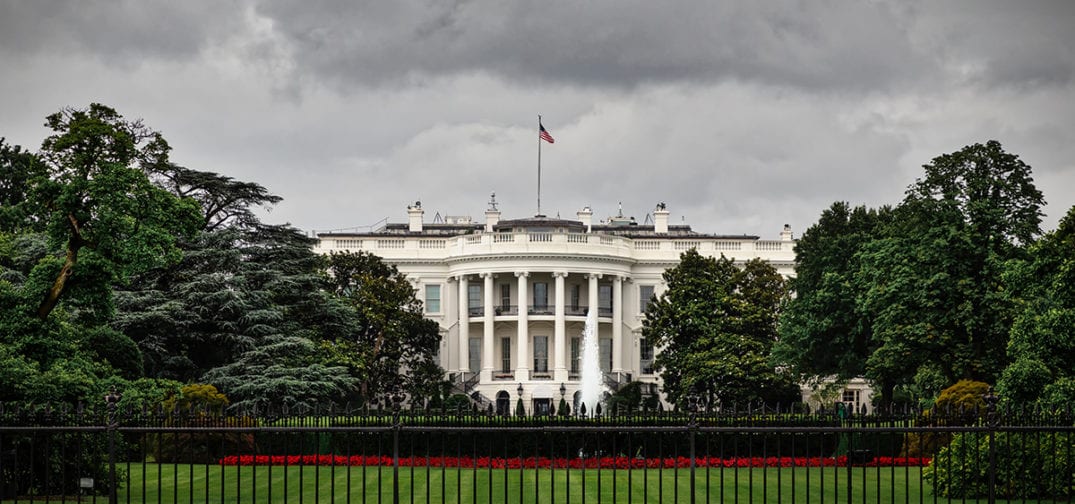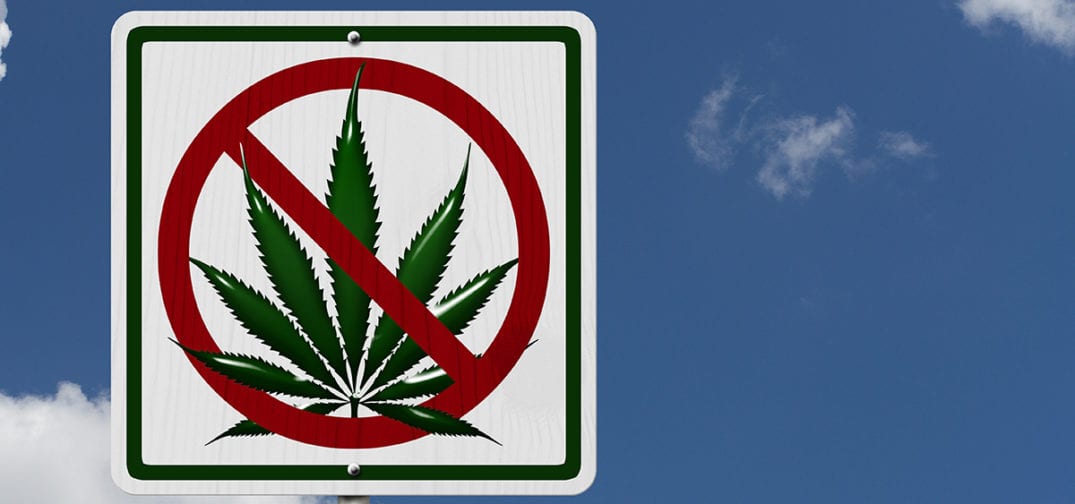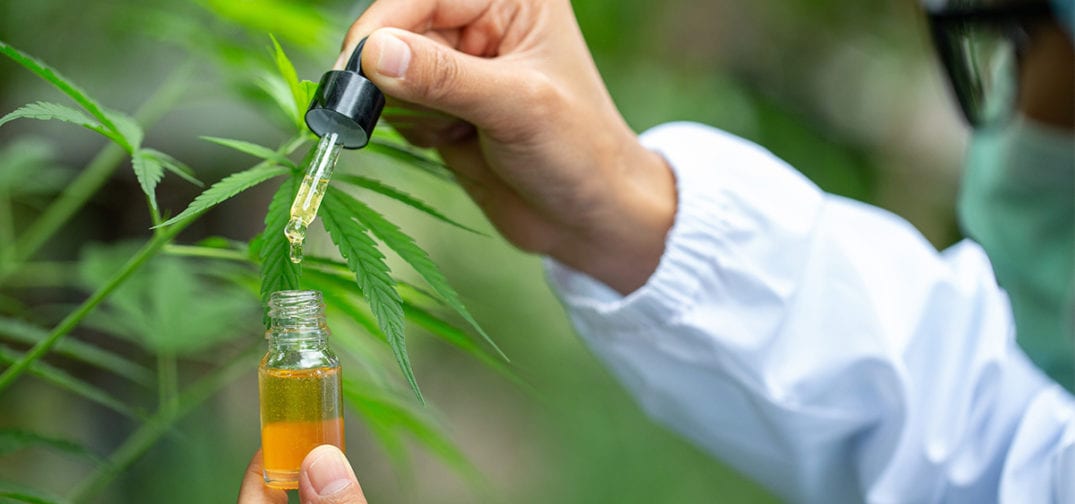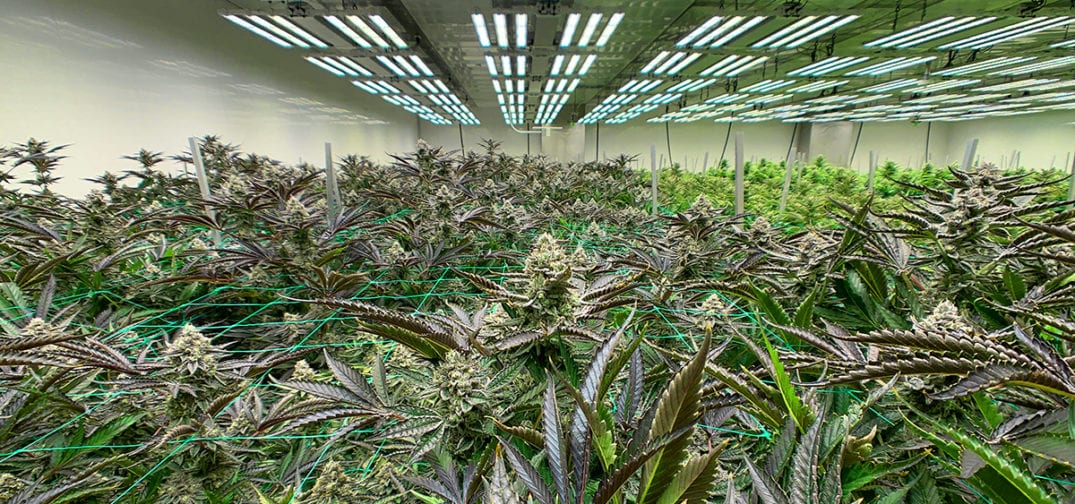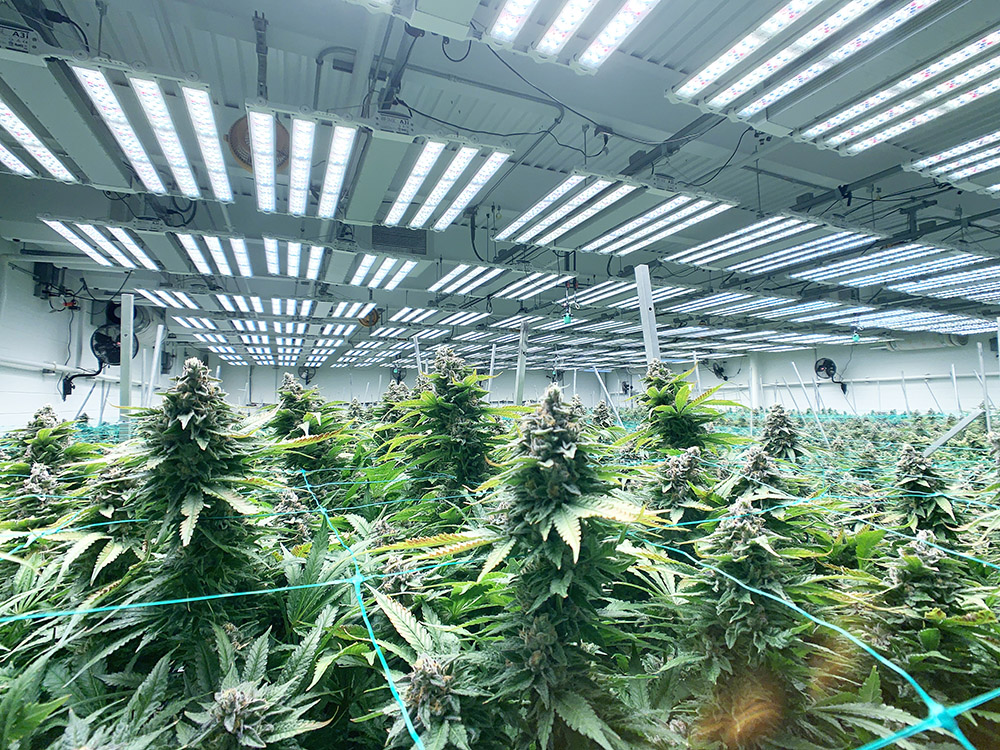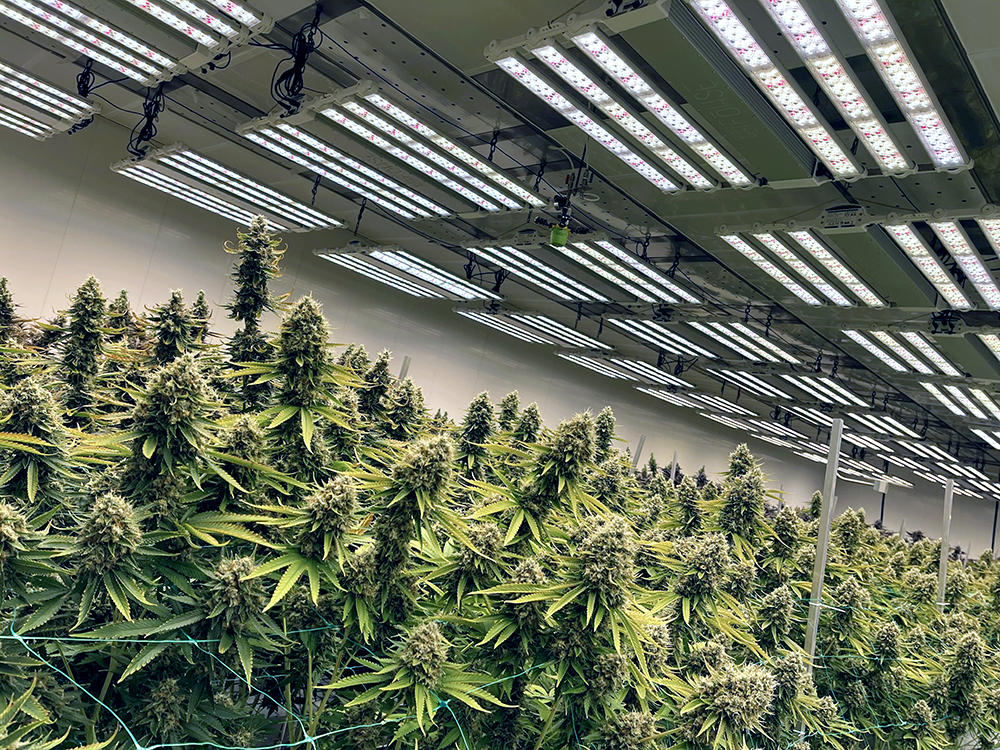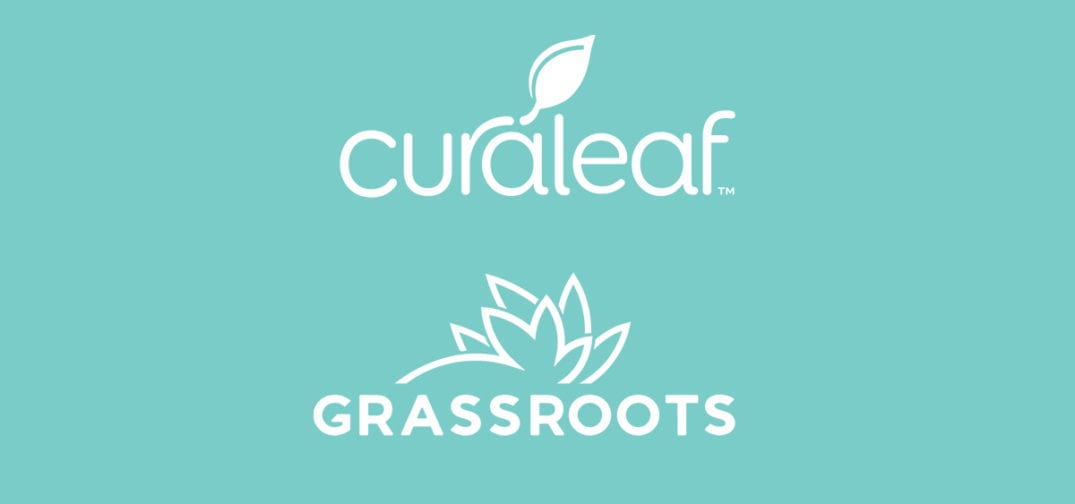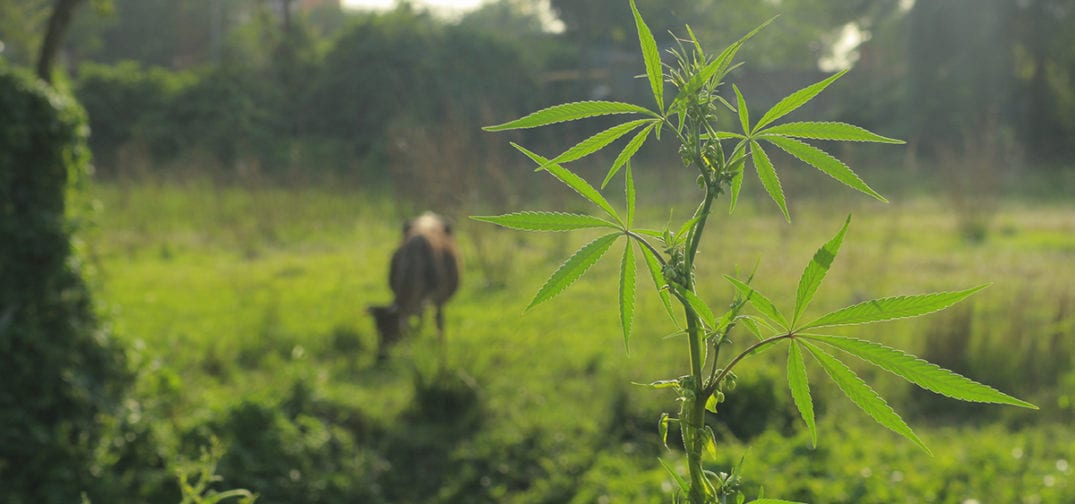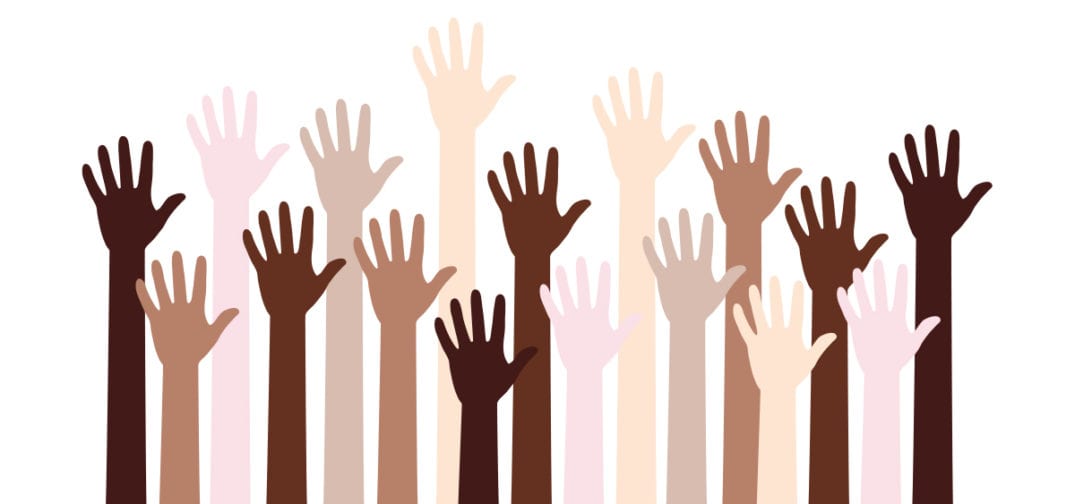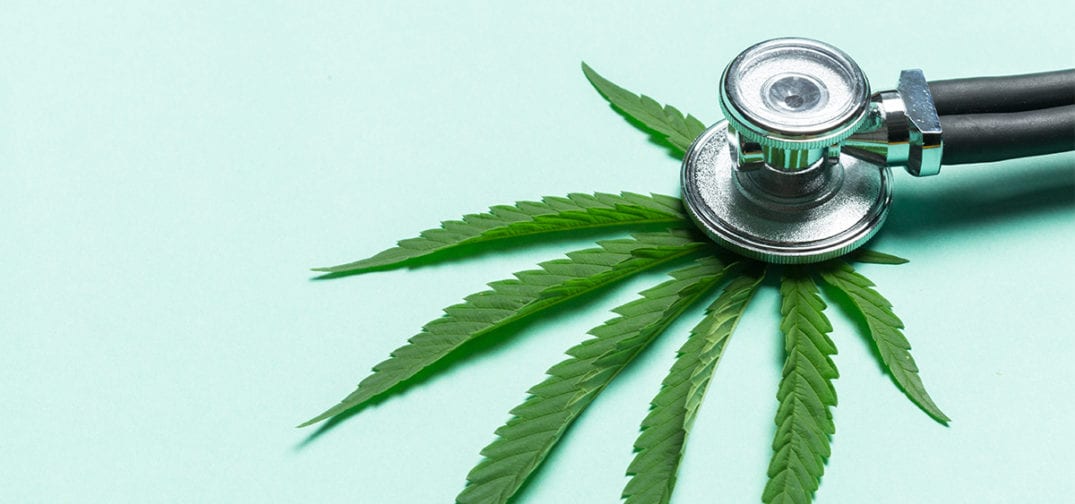John McLeod is the co-founder of Michigan-based Cloud Cannabis Co. — which operates dispensaries in Ann Arbor, Muskegon, and Traverse City — and a former police officer for the city of Detroit.
In this podcast interview, John discusses how an on-duty injury ultimately opened his eyes to the effectiveness of cannabis medicine, how cannabis saved him from a descent into opioid dependency, and the fateful founding of Cloud, whose motto “Live Higher” embodies the company’s vision of prioritizing patients over profits. John also talks about the need for more balanced representation in the cannabis industry, his former colleagues’ reactions to him having launched a cannabis business, Michigan’s transition into an adult-use marketplace, and more!
Listen to the podcast:
Read the transcript:
Commercial: This episode of the Ganjapreneur Podcast is brought to you by CannaPlanners. CannaPlanners is on a mission to normalize the emerging cannabis industry through beautiful design and professional web and marketing solutions. Whether you’re looking to create a new cannabis brand, improve your packaging design, or get your company online, CannaPlanners has the perfect solution. Your website is the window into your cannabis company. Make sure that you look awesome, that your messaging is on point and the traffic converts to customers through SEO. From CBD companies to dispensaries and everything in between, CannaPlanners has you covered. Visit them online today at cannaplanners.com for a free web demo. That’s cannaplanners.com.
Ganjapreneur is excited to announce the launch of our new YouTube series, The Fresh Cut, hosted by Cara Wietstock.
Cara Wietstock: Hi, I’m Cara Wietstock, host of The Fresh Cut by Ganjapreneur. In this interview series, we get straight to the source and speak with the real people working in the industry. In our first episode, I spend time with Nancy Southern, whose current mission is to educate seniors on cannabinoid medicine. She lets us know how to facilitate a comfortable retail setting for older adults and provides product recommendations directly from her own experience. Catch this and all future episodes on YouTube.
TG Branfalt: Hey there, I’m your host, TG Branfalt. Thank you for listening to the Ganjapreneur.com Podcast, where we try to bring you actionable information and normalize cannabis through the stories of ganjapreneurs, activists and industry stakeholders. Today, I’m joined by John McLeod. He’s the co-founder for Michigan-based Cloud Cannabis Company, and he’s a former police officer for the Detroit Police Department.
We have a lot of issues to get through in terms of your background as a law enforcement officer, as well as your role founding a cannabis company. Before we get into that, why don’t you just briefly tell people how you ended up in the space without going into too much detail?
John McLeod: Yeah. Right on, and thank you, TG. It’s a great pleasure to be on your show. I appreciate the discussion and the ability to elaborate some on this. Cannabis for me as a business play really paralleled my own medical play as a cannabis patient. I was injured and was put on the opiate train, and I know we’ll get into this a little bit more further on. But cannabis became medicine to me and I had no experience with it prior to that, and it was really eye-opening.
What we wanted to do as a company is to help guide that experience for the future canna-curious or people who are new to the space or people that just need a natural healing alternative in these times.
TG Branfalt: The way that we got connected was you had reached out after we had published an article about a New York Police Department officer who had been denied medical cannabis after an on-the-job injury. The email that we received from you was that it made your blood boil. Can you tell me a little bit more about your reactions, the visceral reaction that you had when you read that report?
John McLeod: Yeah. Absolutely. It still makes my blood boil that anyone would be denied the ability to naturally heal themselves of any ailment with cannabis. The fact that this police officer was denied it just based off the simple fact that he was a police officer, I find just extraordinarily troublesome. Because I know as a former police officer, I could go to work hopped up on opiates and it be completely acceptable and normalized and run of the mill.
No one would think twice about it. But someone who used a very low-dose medicine cannabis would be looked at considerably different. I think the hypocrisy of it is just disgusting.
TG Branfalt: I appreciate you reaching out because it’s very rare, we had a little discussion before we went live, that people in this industry have the opportunity to have these open discussions with law enforcement or even former law enforcement. So I want to talk to you just a little bit about that. When you were a law enforcement officer in Detroit … And I mean, people who listen to the show know I lived in Detroit for a year.
I loved that city, but I also was keenly aware, while I was there, about the racial disparity in arrests, and especially when it comes to cannabis. I mean, it’s a predominantly Black city. What was your opinion about cannabis while you were an active duty police officer?
John McLeod: Yeah. I’m born and raised in the city of Detroit. I’m a Detroit public school kid, so being a police officer in Detroit was a decision that I made very, very early on in life. I don’t talk about this much, TG. I was in seventh grade, the middle of the day, walking home from my school bus when I was a victim of a violent robbery for my winter coat.
Now, as if that wasn’t traumatic enough for a seventh grader, when the police officers arrived at my home later that evening to take the report, they were extraordinarily disrespectful, very, very condescending and not helpful in the least. For me, at that very tender age, I learned two things. One, I got to watch my back a little bit better. Two, I wanted to become a police officer because I never wanted anyone to feel the way that I felt at that moment.
For me, it was, that’s the way I approach policing. My approach was to be a healer, to be a helper, to be someone that was never going to put a barely teenage child in that type of position, right? I was fortunate enough to become a police officer in Detroit. It was one of the best jobs I ever had. I worked with some of the finest people that I’ve ever met, but cannabis in Detroit is not really a huge focus of a lot of the attention, particularly of the patrol officers on a day-to-day basis.
Detroit has certainly had its challenges over the years and had some comebacks and some downfalls, but it’s a gritty city. It’s a city I love and it’s a city full of just really unbelievable people, great people. The police department, we never really went after weed, so to speak. It was never really a focus that I was ever around. When I was preparing for this, I was going through and I’m thinking, “I don’t really recall arresting anyone for cannabis.”
TG Branfalt: Really?
John McLeod: It’s the same thing. I never wrote a single speeding ticket, you know? I mean, those functions that I think most police officers do on a day-to-day basis. Maybe it’s because I was in Detroit so we had other things to do that it wasn’t a focus of ours. It was never anything that I ever dealt with, to be honest with you. I would say the challenge is, is just a basic understanding that the laws are the laws and the police officers do not write the laws. They’re just there to enforce the laws.
Just understanding that there is a difference between the two. In 2008, in the state of Michigan, there was a medical marijuana law that was passed, and that changed everything in Michigan. I think it changed everything on a policing standpoint too, in Michigan, because now fast forward in 2016, you have an adult use law that comes on the books. We’re a full adult use state in Michigan and we’re getting to be a relatively mature market at this point in time.
Cannabis is not a thing anymore here. I mean, I have friends that are still on the job and one of them who was a canine officer who actually got to bring his dog home because he cannot use it in service anymore because it’s trained to detect cannabis. Therefore, they can’t use that dog anymore. There’s a whole piece of evolution with the policing industry that has come along with cannabis as well. I think it’s a unique perspective that I bring to the table to understand that, listen, this is a legal industry now.
This is an industry that we should embrace and this is an industry that does a lot of good, both in people’s lives in communities that have been historically disproportionately affected by cannabis prohibition. When you look at these communities in Michigan that are benefiting from cannabis businesses, cannabis investment, and cannabis jobs, which I think is probably the biggest benefactor in all of the industry, is how many good paying jobs are created. A lot of these are centered in communities that were otherwise not desirable investments to a traditional business. The cannabis industry has been able to come in and revitalize huge industrial buildings or rundown retail locations, or invest in pockets of neighborhoods or communities that otherwise would not get investment, and certainly would not get the amount of jobs that come from this industry. There’s so much benefit to it and a lot of that benefit goes to a safer community with cameras and lights and visibility and walkability.
All of that stuff helps the police do their job, which is enforce the laws, which is what they’re intended to do.
TG Branfalt: As a native Detroiter, what’s your take on the push for social equity in the cannabis space in general? Specifically, do you think that regulators are doing enough, lawmakers are doing enough in Michigan, to help those communities that were most affected by prohibition?
John McLeod: Yeah. I think, is anyone doing enough? Probably not, right?
TG Branfalt: It’s true.
John McLeod: I mean, let’s be honest. Are they trying really, really hard? I believe so. There’s a couple of examples. Our own regulatory body in Lansing is headed up by a man by the name of Director Brisbo, Andrew Brisbo. He has set a tone for social equity in the state of Michigan, which I find is very, very loud. I mean, he’s letting it known that this is something that’s going to happen here. They’re pushing it very strong from a regulatory perspective.
Then at the municipal level, you have people like Councilman James Tate in the city of Detroit who has rolled out a program, which I think establishes legacy applicants and social equity, which potentially is second to none in the industry. I think there’s a lot of opportunities to do better. I think there’s a lot of opportunities to be more inclusive. I know from Cloud’s perspective, we’re constantly evaluating and looking at all opportunities to do so.
But from a regulatory perspective in Michigan, I think we’ve been very, very progressive the way our cannabis legislation has been rolled out. I think the intent is to do the same thing with social equity.
TG Branfalt: Well, I mean, you have such a unique perspective on the industry regarding your background. I want to just ask about your unique perspective with your experience with opioids and your journey to medical cannabis.
John McLeod: Yeah. I kind of alluded to it before, but I was a police officer, loved my job. I’m running down the alley one day, next thing I know, I tear my ACL, my MCL, and I’m just a hobbling mess. After several surgeries, the police department retired me out and said, “You’re on opiates the rest of your life and here’s your doctor’s number and this is pretty much how it goes.”
My wife and I tend to be more natural, more healing people. We’re yogis. We’re trying to do the right thing, you know? So we struggled with that quite a bit. I started off with very low-dose pills and eventually moved up to a patch, a long-release opiate patch. It just wasn’t working for me and I was unaware. One day my wife sat me down and said, “Look, it’s changing who you are. You’re not the best husband you could be. You’re not the best father you can be.” I think quite frankly, she was just telling me I wasn’t the best human I could be.
But for that conversation, I was unaware of how the opiates were changing me as a person. I was on a very low dose, very, very low dose. At that point in time, we said, “This has to change.” I had a conversation with a good friend of mine who’s a medical cannabis provider in the state of Michigan. He writes recommendations. He’s on the forefront of the industry, really just an unbelievable guy. He was ready for me to come see him.
He was ready for me to experience the healing benefits of cannabis. When I finally tried it for the first time, TG, it was like flipping a switch. It was unbelievable how I was able to heal myself naturally with no side effects and with nothing synthetic putting into my body. It was a game-changer for me. It was an eye-opener for me. I had no previous cannabis experience. For me, I was hesitant to even begin, but my transformation was instantaneous.
That really sparked my interest in spreading that word to the masses, because I think there’s a stigma that we’re fighting against first and foremost. But I think there’s an information gap in most people’s visibility when it comes to cannabis. We really try to strive to fill that gap for people.
TG Branfalt: Tell me about filling that gap for people. You’re somebody who had no experience, who started medicating with cannabis. That was your entry into it. Tell me how you used that experience to help educate people that-
John McLeod: Yeah. Well … Sorry to cut you off. That’s a great question. Listen, on your November 19 podcast, you’re talking to Shawn Gold. It’s a great podcast, by the way.
TG Branfalt: Thank you.
John McLeod: I would recommend everyone listen to it if they haven’t. He said a quote that really stuck with me. I had to write it down. He said cannabis for him was like a second opinion. It really stuck with me when he said that, because for me, I kind of felt like I was living a certain type of life. I thought that I was on a path and I couldn’t deviate from it.
Little did I know cannabis was waiting there for me as that second opinion, as saying, “No, look, this is not the path you’re supposed to be on. You can live a better life. You can live higher.” As we like to say. You can live the best version of yourself, right?
TG Branfalt: Yeah.
John McLeod: For me, being able just to explain that to people and to come at them as just someone who had no cannabis experience, someone who had a law enforcement background and who was very by the books, this is the way it is, cannabis is not some deviation from that. It’s not. It’s a tool to healing that naturally occurs in our world that’s here for us. Just explaining to people that it’s not the cookie that your uncle gave you at the holiday party, where you were high for a couple of days. That’s not what we’re talking about here.
That’s fun and everyone has a good time with that and it’s a great story. What we’re talking about is regulated, tested product. Product that you know what’s in it, and what’s not in it more importantly. Product that you can know your dosage amounts so that you can properly microdose yourself until where you get to that position where you’re healed, or you get to that position where you’re whatever you’re trying to go for so that cannabis can be the best tool to help you live the best version of your life.
TG Branfalt: I just got to ask, man, you’ve obviously become very, very passionate, not just about the industry, but I mean, the healing benefits of cannabis. Can I just ask, what is the reaction to your second act, if you will, from your previous colleagues in law enforcement or people like that? I mean, are they surprised where you’ve ended up?
John McLeod: Yeah. Absolutely. I’ll be honest with you. I’m surprised too. Listen, I’m very fortunate that I was able to have access to the people in a state that had laws that protected me as a patient that allowed me to make this progression into cannabis. I think of the people that live in states that don’t even have a medical program in this country and the lengths that they have to go to, to just heal themselves naturally. I think there’s a lot of surprise, but I also think that the story is real.
The healing is real, so regardless of the background or the order, it’s the information is just, it’s truth. Speaking that to whoever will listen to it, is really what I feel like my responsibility is, not only to this company, but to the industry as a whole, because we can be stewards of this industry. This is something that we live day to day. You live this every single day and have for a very, very long time, but for the majority of the mass public, this is the front end of this.
This is just the beginning of the cannabis movement in the United States of America. Really to be the right ambassadors of the industry to the general public, I think is a huge piece of this.
TG Branfalt: Tell me a bit about building your brand. One of the things I found really interesting, I read an interview with you and you said, “To be taken seriously, you have to be in Ann Arbor.” Obviously, you’re building your brand around this idea of being taken seriously by the right people. Why don’t you first tell me about building your brand? Then I want to ask you a question about Ann Arbor.
John McLeod: Okay. Yeah. Absolutely. We really have tried to build a brand that’s very inclusive to all, that’s very open, very cheerful, very accepting. I’ve been fortunate to build this brand with some of the finest business minds that you’ll ever meet. These just happen to be good friends of mine. This is a family business. We built this ourselves. We bootstrapped it all ourselves. This is something that we did because we feel like we have a better approach to the cannabis industry.
We feel like we have the right education-minded approach to the cannabis industry, and we have some really great people. I mean, one of my partners is one of the finest extractors in Michigan with a great brand, the business acumen on the top end is just unbelievable. We’ve been able to forge a hole in the space that’s allowed us to establish Cloud as an accessible kind of brand.
That’s what we look to grow. We have a couple of locations open and operating in the state and we have big plans for next year.
TG Branfalt: I want to go back to Ann Arbor just a little bit. For most people … I mean, again, I lived in Michigan, I loved Ann Arbor. I spent a ton of money on records in Ann Arbor. I had a great time in Ann Arbor, Michigan. Explain briefly the culture of Ann Arbor and why you feel the need to be there in order to be, in your own words, taken seriously.
John McLeod: Yeah. As I said, born and raised in Detroit. The unique thing about Metro Detroit in particular or Ann Arbor’s proximity to Detroit is born and raised in Detroit, but 25 minutes down the road from Ann Arbor, which is this beacon on the hill when it comes to cannabis, right? I remember growing up, going and walking around the Diag and just hanging out and feeling like we were cool as teenagers in Ann Arbor.
Understanding that it was very progressive when it came to cannabis and really embracing that. My senior year government paper was on the legalization of marijuana, you know? It’s not-
TG Branfalt: Seriously?
John McLeod: Yeah. Listen, I’ll be honest with you. I was very, very proud of my teenage self at that point in time because I went from writing that paper, which I got an A in that paper, thank you, Mr. Dean. Shout-out to Mr. Dean on that. Then I went right into law enforcement, right thereafter. My thoughts on cannabis were certainly, I guess, probably little bit more progressive than most at that time. When I think of Ann Arbor, I mean, think about it.
The pioneers that came out of Ann Arbor in cannabis are too numerous to tell, but John Lennon did a concert for John Sinclair in Ann Arbor. I mean, this is John Lennon we’re talking about here.
TG Branfalt: Wow.
John McLeod: You know what I’m saying? This is someone who John Sinclair was incarcerated for having two marijuana joints and he got 10 years and there was a whole movement behind that and a big concert that John Lennon put together. I mean, this is how far Ann Arbor is ahead of, certainly the rest of the state, but probably the rest of the country when it comes to cannabis. I mean, this was 50 years ago. For me, I felt like we couldn’t really have a cannabis brand until we were in Ann Arbor. That’s just because that is the epicenter. Period.
TG Branfalt: I mean, another really interesting part about your brand, your philosophy, and this was something I didn’t realize until we started talking at the beginning, before we went live again. I’d gone through your intro and you’re like, “Hey, get rid of that chief position.” You said, “We’ve decided to get rid of the C-suite titles.” You’re the second cannabusiness entrepreneur that I’ve spoken to in the last two episodes that has had this shift by independent operators to get rid of these C-suite titles. What’s your impetus behind that move?
John McLeod: I think just having a more welcoming and opening environment. I mean, for us, we are only … Me as a co-founder or whatever position I hold within the company, I’m only as good as the patient advocate or the budtender that’s coming to see you when you pull up at one of our stores. If you have a bad experience with that person, your reflection of my company is going to be that. It’s a more collaborative effort, it’s a more collaborative approach to the way we handle business.
We’re about putting the right person in the right seat and making sure they have the tools to do their job successfully, and then getting the hell out of the way and letting them do what they have to do. There’s a reason why you put people where you put them. We’re not a company that’s afraid of making mistakes or doing something wrong. We firmly believe that you cannot grow without making mistakes. You cannot grow without doing the wrong thing one way or another.
As long as your mind and heart is in the right place, we’ll figure it out. It’s that second mistake that you got to watch out for. We want to be a collaborative company. We want to be a company that’s all about acceptance and growth and kindness. That’s the way we started this. Like I say, it’s a family company. It really is. I mean, it’s a family company.
TG Branfalt: Your name’s on it.
John McLeod: Yes, yes, yes. Ironically so, but it’s a family company from top to bottom and some of the finest people you ever meet started this company with me, and I feel very fortunate to be a small part of it.
TG Branfalt: As the co-founder of a cannabis business, what do you look for in the right person? Let’s say for a liaison to management position, or somebody who has a little bit of power, but isn’t you, right? What do you look for? What personality traits?
John McLeod: Well, it’s the motor city, so first and foremost, the one word you will always hear before we talk to anyone is, do they hustle? That’s it. You got to hustle. The cannabis industry is not a 9:00 to 5:00, Monday through Friday industry. It’s not. It’s an ever-evolving, ever-changing industry that’s not for the faint of heart. We’re looking for someone who has hustle. Then someone who matches our core values.
Someone who’s respectful, someone who is responsible, someone who’s accessible and someone who fosters good relationships, both in their business and their personal life. You got to have good balance too, to be good at your job. That’s really what we look for. There’s no one of us founders that are above getting that phone call at one o’clock in the morning. I didn’t say three o’clock in the morning, or five o’clock in the morning, or 10 o’clock at night on a Sunday.
I mean, those are calls we take actively every single day and I hope that never changes. I really do. I hope that never changes, but we would certainly require that amount of dedication from anyone that was associated with the Cloud.
TG Branfalt: As a small operator, what are some of the challenges for you with regard to Michigan’s industry? At the same time, what have regulators gotten right?
John McLeod: Yeah. I’ll preface this by saying small operator now. We’re open in Ann Arbor, we’re open in Muskegon Township. We’re soon to be open in Traverse City. Then we got a good slate of stores next year for you that are really going to be outstanding.
TG Branfalt: I mean, you’re not a Curaleaf. You know?
John McLeod: No, that’s true. That’s true. I guess for us, the biggest thing has just been working between the regulatory changes. The 2016 voter initiative that legalized adult use cannabis in Michigan is not perfect. It’s better than nothing. Don’t get me wrong. I’m very fortunate to be working in a space that has that, but there are some challenges that come along with it. There’re some pitfalls, both at the municipal level, but also at the state level too.
Just managing those, that’s certainly a challenge. I think the regulatory body in Michigan has really done just an amazing job with the whole rollout of cannabis legalization. I think they’ve been supported by their staff and certainly by the population of the state of Michigan. I mean, we’re very pro-cannabis state and the regulations that they’ve rolled out have been progressive and have been open. As we go on I hope that continues to be the case. You know?
TG Branfalt: Yeah. I mean, not for nothing. I mean, a lot of the early operators, they were operating in a gray area for so long that I think that regulators themselves had a bit of challenge just giving them a little bit of credit over there in Michigan. I love asking owners, especially those who work with both patients and rec users, what products are most popular at your dispensaries?
John McLeod: Yeah. It’s a great question. I think we’ve seen, it’s almost regional. What plays in Muskegon Township, which is a little more northern, West Michigan than what plays in Ann Arbor is a little bit different. Certainly we’re a leaf-heavy state. Cloud Cannabis prides ourselves on our selection of leaf. This is where it all started. We have what you need at Cloud, that’s for sure. That is for sure on the leaf end no question about it.
I mean, that’s certainly what our KPIs are telling us, is that we’re a very bulk leaf-heavy state. There’re some new products that are coming to market, particularly in the edible kind of things. Cannaco out of California is coming to Michigan here shortly and they’re bringing a product that is not seen in Michigan thus far. We’re really excited about that launch. Mitten Extracts is putting out some really, really great extracts, some unbelievable concentrates, and those seem to go really well at the store level as well.
It just kind of is individual based. That’s where we try to help because I can’t tell you how many times I’ll have someone come to the store or find me in a grocery store or what have you and we’ll talk about what they’re trying to treat or what they’re looking to accomplish. These are canna-curious people. I mean, in the state of Michigan, we’re just shy of 300,000 registered medical patients in the state of Michigan.
We’ve had a medical law since 2008, so it’s quite robust. Those numbers are going down now a little bit since adult use came into play, but not as quickly as people thought. We have 6.1 qualifying adult use customers. That’s a lot of people that know nothing about cannabis. I know that experience quite intimately well from my evolution with cannabis.
For me, really bridging that gap, explaining these, because I know people that can smoke leaf all day long, but they take a five milligram edible and they’re done. You know what I mean?
TG Branfalt: Oh, yeah.
John McLeod: They’re just done. It really is, it’s very individual because you can’t say, “Oh, you can handle this bong rip or something so you can handle 2.5 milligram peppermints.” Really just explaining, or understanding what someone is trying to accomplish, understanding what their end goal is, and then curtailing the product to that. That’s really the piece that’s important.
TG Branfalt: What question do you get asked most often from canna-curious people and what is your answer to them?
John McLeod: Yeah. What can I do to help me sleep? No one sleeps.
TG Branfalt: Really?
John McLeod: No one sleeps. The doctor I referenced earlier, he always tells people, he says, there’s let’s say 300,000 registered patients, but there are a lot of people in the adult use space that use cannabis medicinally. Otherwise, if it weren’t cannabis, we would call it medicine, right?
TG Branfalt: Yeah.
John McLeod: There’s people that don’t have their medicinal card that use cannabis medicinally, and a large majority of those are people that just don’t sleep well. If somebody comes to me with a complaint of not sleeping well, I would suggest probably a low-dose gummy 45 minutes before bedtime, and then come back and let’s see. It’s a trial and error process. We try to approach from a micro-dosing level where you’re going to start low and move your way up.
That way you can be in control of the experience. The last thing we want anyone to do is to be overdosed, to be too high, not have a good experience and then turn their back on cannabis. Because not only have we lost someone who will never experience the true healing of cannabis, but we’ve probably changed their mind to where they’re going to look at the space differently.
They’re going to talk about the space differently. That’s the bigger loss I think, because then you’re not really representing the industry and the plant in its best light.
TG Branfalt: This whole conversation, people don’t see the video, we use the video, but you’ve been smiling, I mean, this whole conversation. This might be a tough question for you, but what is the best part about the space for John McLeod?
John McLeod: Wow. That is a tough question. It’s a tough question. I think for me, probably the best thing is that I know that cannabis saved my life. Period. I know that I would not be anywhere near the person that I am today, if it weren’t for cannabis. For me being able to speak on that, being able to explain my experience and being able to inform people. I feel very fortunate every single day to be able to do that. Listen, my job, I get to talk about cannabis with people like you, man.
It’s like, what’s not to love about it? We’re doing some really great things as a company. I mean, we’re doing some really good charitable commitments. I mean, we’ve got this really good thing going with women veterans in Muskegon this weekend that we’re really excited about. We’re partnered with the Humane Society of Washtenaw County helping homeless animals in Ann Arbor.
I get to be part of that too, which is just the giving back, the talking about, and just the information piece for me with cannabis, I’m so fortunate, just so fortunate, man.
TG Branfalt: I mean, I really appreciate your candor throughout this whole conversation because a lot of people they’ll come on here and you can tell the underpinning is more trying to, I don’t know, just create a bigger deal about themselves than they are. With you, I mean, I think that you’re keenly aware of the unique position that you’re in and to see the joy and to hear the joy that you put off, it’s heartwarming, man.
I mean, it really is, and I’m not a guy whose heart is warmed easily. We’re getting ready to wrap this up here and I got to ask you, what advice do you have for entrepreneurs who are looking to enter the cannabis space?
John McLeod: I would say … And thank you for those kind words, TG. I appreciate it. I would certainly say, just trust yourself. Trust yourself, bet on yourself. I believe in luck, but I also think you make your own luck. You know what I mean? I think you just work hard. If you’re dedicated to whatever you’re trying to do, I think that’s the key to success, but you just got to start. I wrote down a quote five years ago when we really started trying to look at this as something we could provide value to the industry with, and it’s a Zig Ziglar quote.
He says, “You don’t have to be great to start, but you got to start to be great.” That would be my advice, is you’re never going to get there if you don’t take that first step.
TG Branfalt: I think that’s really, really great advice. Where can people find out more about Cloud Cannabis Company and maybe find out more about you? Social media, websites?
John McLeod: Yeah. Cloudcannabis.com is going to be your one-stop shop for all reference Cloud Cannabis. You’ll be able to get locations, you’ll be able to get online menus. There’s some really cool interactive stuff when it comes to strain-specific or picking a strain for a consumer that’s cannabis curious. We have an option where it gives you pictures where you just click on a picture and it tells you that’s what you … And then it’ll show you, which strand works best for you.
There’re some really great resources on the website. That would be the one-stop shop. Then if you’re in the Muskegon area, come see us in Muskegon Township or Ann Arbor, and soon to be in Traverse City and a town near you.
TG Branfalt: Well, it’ll be 2022 before you can come to a town near me. I do plan, once this pandemic is over, to go back to Detroit again. I love and miss that city. Hopefully, once everything calms down, I can drive out there again. I’d love to link up with you and enjoy your home city with you because I think it’d be an incredible experience, man. I really appreciate you coming on the show. You’re a wealth of knowledge and excitement. I didn’t really know what to expect when I get an email and it’s like, “Hey, here’s a former cop.” You know? You’ve surprised me a little bit and I really appreciate you coming on the show again.
John McLeod: Well, and I appreciate the platform and the ability to talk. As I stated before, it’s a great pleasure of mine to be on your podcast. I’m a regular listener and a huge fan of you so this is really my pleasure. Thank you.
TG Branfalt: That’s John McLeod. He’s the co-founder for Michigan-based Cloud Cannabis Company. He’s a former police officer for the Detroit Police Department, and he’s a hell of a nice guy. You can find more episodes of the Ganjapreneur.com Podcast in the podcast section of Ganjapreneur.com, on Spotify and in the Apple iTunes store. On the ganjapreneur.com website, you’ll find the latest cannabis news and cannabis jobs updated daily, along with transcripts of this podcast.
You can also download the ganjapreneur.com app in iTunes and Google Play. This episode was engineered by Trim Media House. I’ve been your host, TG Branfalt.


